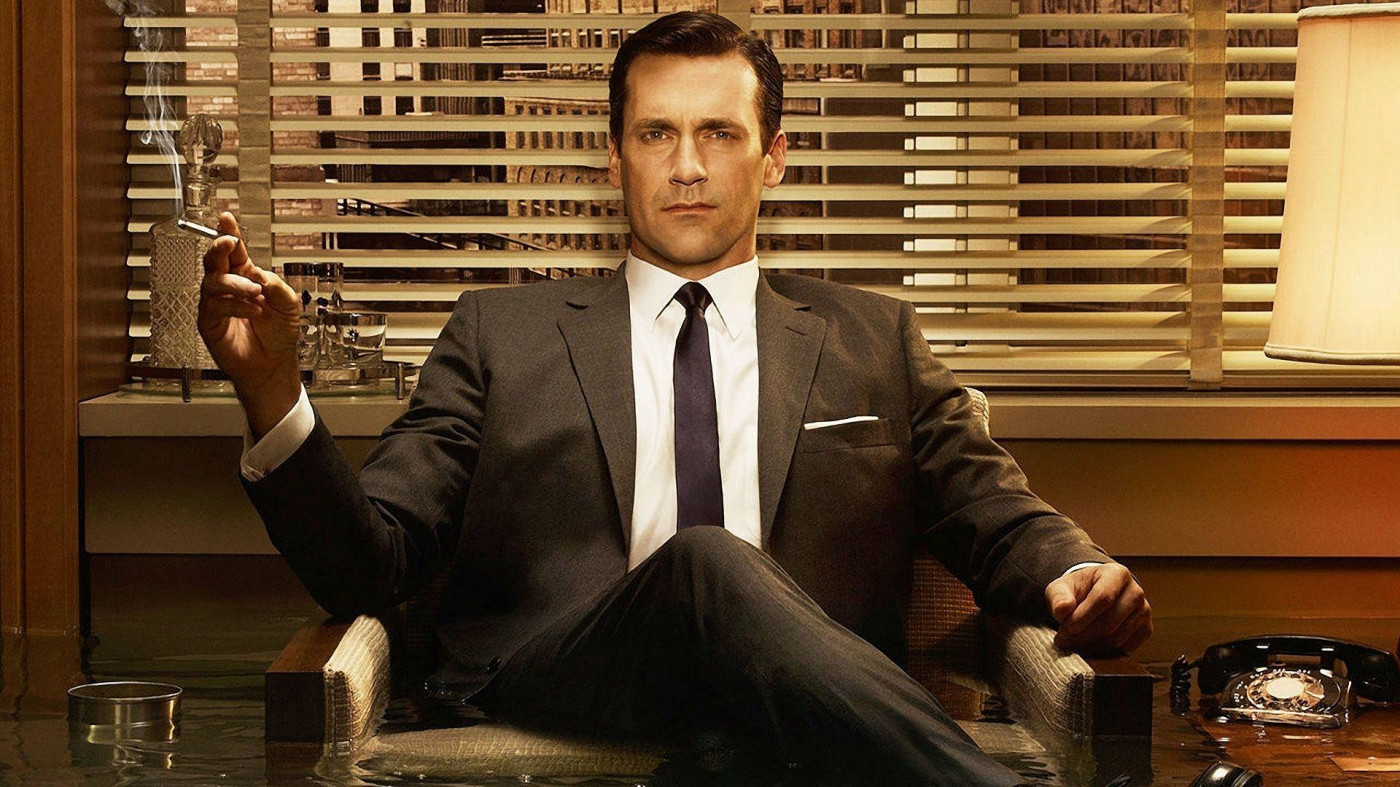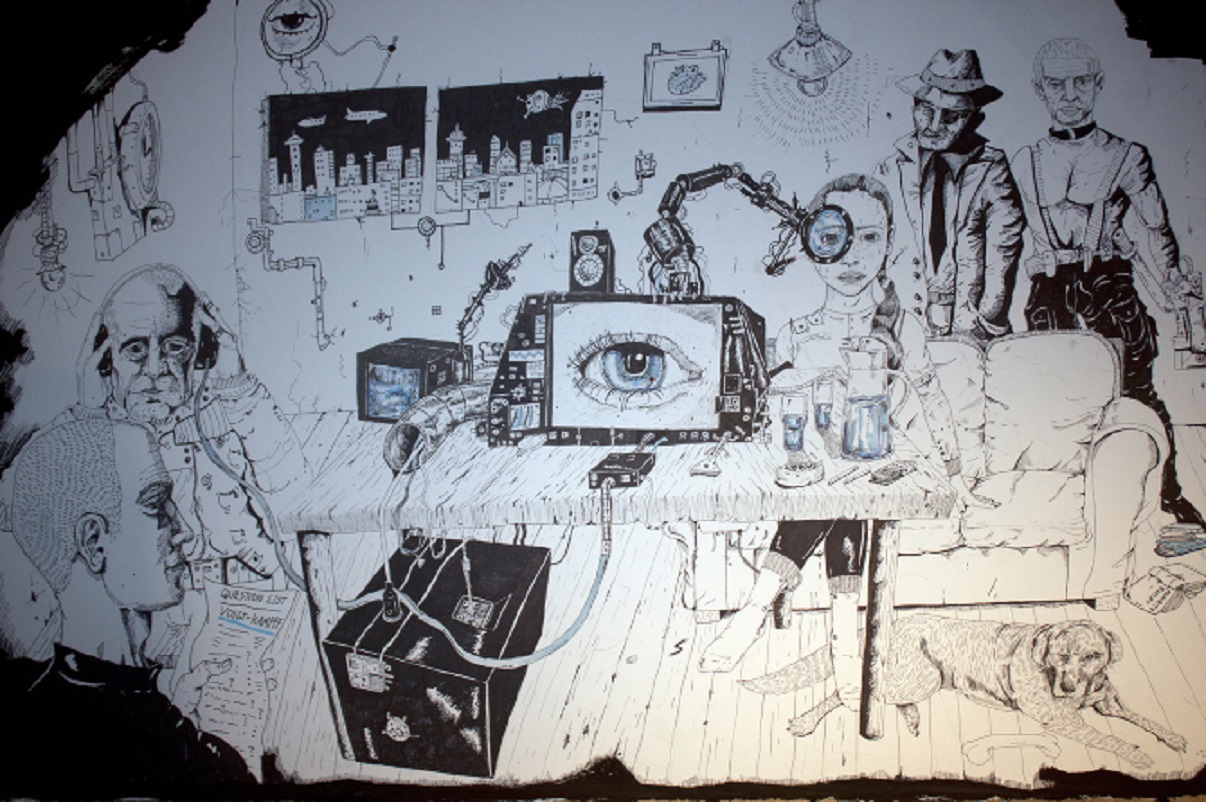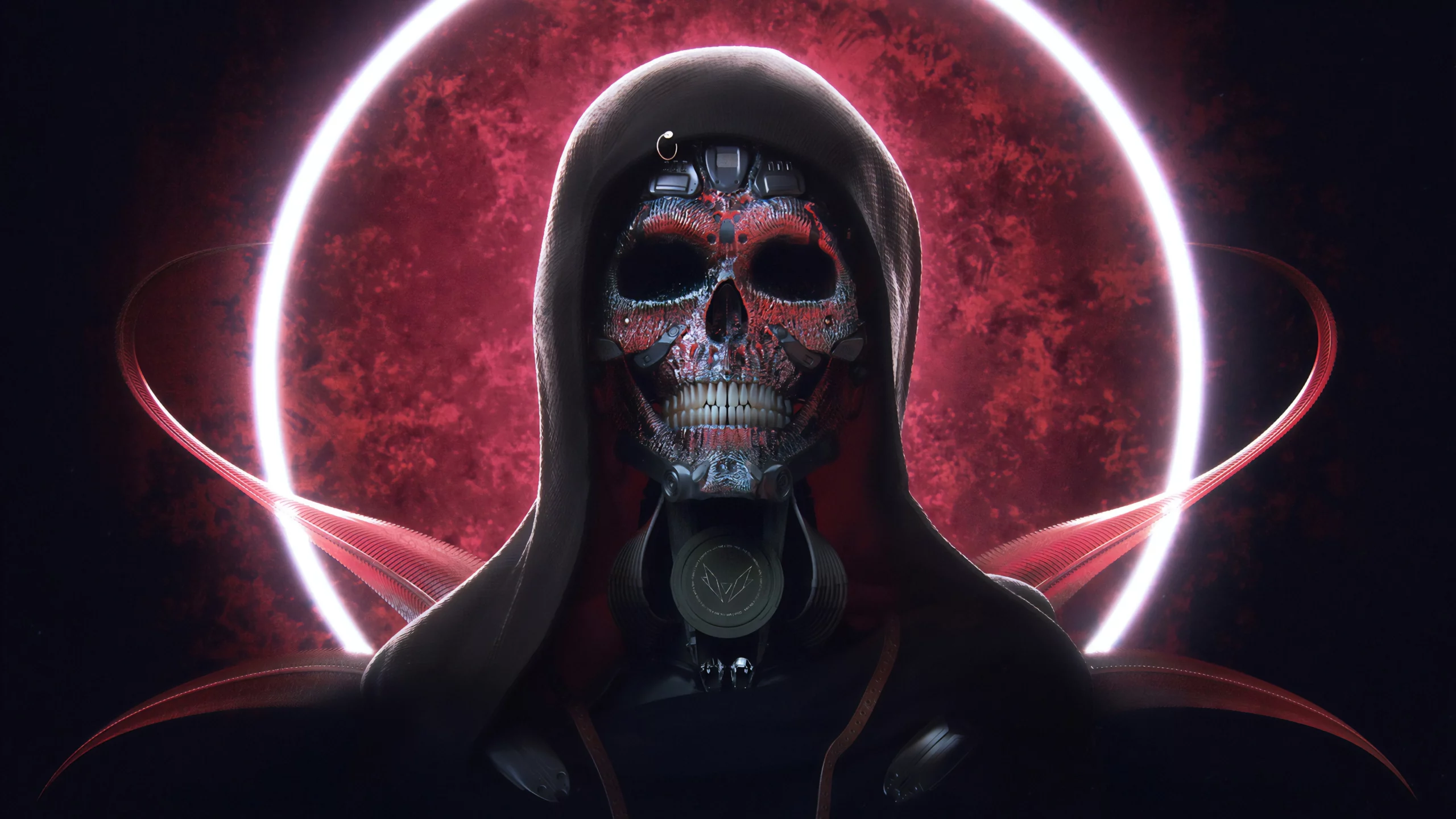Just as a pinhole camera (or the human eye) creates an inverted image of what it is looking at which it projects upon a screen (or the retina) so too does the everyday conceptual mind create ‘an inverted image’ of the world that it is trying to understand or represent. Our concepts are inverted images, our thoughts are inverted images. They are not inverted in a literal ‘upside-down’ way but more in the way of the ‘negative’ of a photograph where everything black becomes white and everything black becomes white.
What this means therefore is that the picture we have of the world has nothing to do with the world as it is in itself but – rather – it is a kind of stylized representation that exists solely for the purpose of providing us with pragmatic ‘hooks’ on which to hang our attention, hooks that facilitate us – to a certain extent at least – in being able to effectively manipulate or control the world that we live in. Our rule-based perceptual-cognitive system exists purely for the sake of manipulating the world – if the description or model we are using is a good fit in terms of it allowing us to obtain the type of change we want to see then that’s all that we’re interested in. As far as we’re concerned, that’s all the ‘reality’ we need to know about!
Suppose, just for the sake of the argument, that there was some aspect of reality that we are not, and never will be able, to control. Would we care about it? Would we have any interest in it? The suggestion that we’re going to make here is that, just as long as we are in operating within the precincts of the rational-conceptual mind (which is always as we have said an ‘inverted’ representation of reality) then not only are we ‘not interested’ in that aspect of reality which is not amenable to, we are maximally averse to it. We’re terrified of it in other words – far too terrified to allow ourselves to know that such a thing actually exists. This seems like a strange thing to assert –why on earth would we be terrified of an aspect of reality that we can’t control? We aren’t such extreme control freaks that we’re scared of anything that we can’t control, surely? We certainly don’t experience ourselves to be this way…
In one way (a way that we can’t see!) we are exactly that however. We are control freaks – we are control freaks in the sense that we are always arranging things to conceptually appear to us in the way that we expect them to. As far as this type of control is concerned, we’re out-and-out ‘control junkies’ – we simply can’t do without it, that’s not an option for us! Why this should be so is not too hard to understand just so long as we are able to see that it is our controlling (and the narrow frame of reference that we need to be in place in order for us to even see controlling as a meaningful activity in the first place) is what defines us as being who or what we think we are. Our ‘need to control’ is exactly the same thing as our ‘need to be defined’, therefore, even though we never see it like this.
Even to state the matter as we just have done is to somewhat overcomplicate the matter. We do of course need to adopt a narrow frame of reference (and all FORs are narrow) if we are going to be able to [1] see control as a meaningful activity and [2] be able to actually follow through with it, but it’s not really possible to separate out all the various elements such as ‘framework’ and ‘the goals that make sense within the FW’ and ‘the methods we use to bring about the goals’ and ‘our sense of ourselves as the controller’ (or ‘our sense of ourselves as the one who wants to achieve the desired outcome’.) These elements are all part and parcel of the same thing and there’s nothing to be gained as a result of seeing them separately. That’s just confusing matters!
The narrow frame of reference that we adopt in order to be able to control is the same thing as the sense of identity that we gain as a result of controlling, therefore. We are our narrow way of seeing the world and so if we were to ‘relax’ and ‘take the broader view’ then that’s our nicely defined sense of identity gone! It will disappear like a puff of smoke in a strong wind, leaving no residue. It has to be ‘ring-fenced’ with the closed context, or else it can’t continue to be there. Without the closed context (or ‘narrow framework’) the need to control is no longer there and so all the dramas that arise in connection with this needed are also no longer there and it is these dramas (desire, despair, paranoia, anxiety, jealousy, envy, anger, etc) that make up the life of the defined sense of identity – it is through these dramas that the sense of identity comes into being and gets maintained. The entire narrative of who we are and what is happening (or has happened) to us depends on the non-negotiable ‘need to control’ and once we can see this then we can also see why it is that we would be ‘maximally averse’ to coming across that aspect of reality that is not amenable to being controlled or deliberately influenced in any way.
This is such a curious thing, however. What we have here is the situation where the only aspect of reality that we can acknowledge is that aspect which we are able to exert control over, but ‘the aspect of reality which we are able to exert control over’ is of course nothing other than ourselves. The so-called ‘reality’ that we are controlling is just our own reflection, clearly, and so it isn’t reality at all. It isn’t reality at all because if it is ‘only what we control it or want it to be’ (i.e. if it is only there because it corresponds to our own needs) then it isn’t ‘reality’ but merely a faithful reflection of our own needs, our own desires and fears. What we see as reality is our own projection, in other words. Actual reality is only worthy of the name because of its essential independence from our wishes or expectations. Or as we could also say, reality is only reality because it is not our projection!
So to come back to what we started off saying, the only world that we generally know is the ‘inverted world’ of our own concepts – we think we are seeing reality whilst actually all we are seeing are our own preconceptions of it. The reason we can say that the world that is being shown to us by our conceptual apparatus is ‘an inverted version of reality is because it contains no information whilst the nature of reality is nothing other than information itself! If this isn’t an inversion then what is? The picture that is being shown to us by our conceptual apparatus appears to contain information because of the way we are prevented by that apparatus from having any awareness of genuine information. Projections don’t contain any genuine information and this is why Jung says that they isolate us from life. Projections don’t contain any information – we ‘do’ them, we make them, we produce them so how can there be any information in them? If I create my own virtual reality world (or ‘game’) it will have zero information precisely because it was me that created – there’s nothing in my own tame simulation of reality that is ever going to surprise me! If there was something that we did not ourselves do, that we did not ourselves create (or specify) then there will be information in it – no problem at all! But where we encounter our own expectations, our own concepts, our own ideas of reality then there is no information here at all. There’s not a trace, not a whisper – it’s an information desert!
What we have here therefore is a situation where we live in a mind-created reality that is made up of pure redundancy (or ‘pseudo-information’, as we could also call it) and this redundant mind-created reality completely replaces the genuine article, which we are absolutely terrified of because it shows up the pseudo-information that the system runs on as being ‘pseudo-information’. Furthermore, we can make the point again that the mind-created reality is nothing other than our own expectations or preconceptions reflected back at us, and so we’re living in a world that is made up of our own mind, which is another way of saying ‘our own self’. We implicitly see this sterile world that is made up of ‘our self’ as being where all the possibilities are, whilst reality itself – which is needless to say where the possibilities actually are – is something that we are too frightened of to acknowledge as having any existence at all. We’re too frightened to acknowledge reality because we’re not in it. To connect with reality is also to connect with the truth that we aren’t there in it and this is the Buddhist principle of anatta.
So the inverting lens of the conceptual mind makes the real unreal and the real unreal. The ‘unreal us’ can never know anything of reality because if it did then it would at the same time know that it was unreal and this happens to be the very thing that it is ‘maximally averse’ to knowing! It has to carry on not knowing this because in this way the integrity of the security-producing illusion has not been compromised and for the security to exist this is all that is necessary – the illusion doesn’t need to be real in order to provide security, it just needs to seem real! The ‘unreal possibilities’ will then carry on looking like bone fide possibilities and so the game can continue as always. Having said this, the very best thing that could ever happen to us would of course be if we would see through the illusion because then a world of real possibilities would open up to us, but we’re never going to allow this to happen because of our inverted position on things. We’re seeing everything upside-down; we’re seeing the lack of freedom as the genuine article and freedom itself as the ultimate threat, the ultimate disaster – which, from the point of view of the system we’re subscribing to, it actually is!
This is the perfect trap, therefore. There couldn’t be a better one! In order to get out of it we’d have to give up on everything we think we have (or might possibly have if we played our cards right) and this is the least likely thing we are ever going to do. Much more likely, much more predictable is that we will try to maximize our illusory hold on whatever it is we think we have but don’t. The predictable thing is that we will sew ourselves deeper and deeper into the trap; the chances are that we’re going to sew ourselves deeper and deeper into the trap by getting greedy for all the possibilities that don’t really exist. This is predictability ratcheted up to a very high level indeed; this is the highest level of predictability there is – the predictability of the illusory self acting so as to protect the integrity of the illusion that is itself! It is of course perfectly understandable that we would be putting all our energies into doing the thing that consolidates the illusion that we’re trapped in rather than refraining from doing what looks like right thing and weakening it. We are after all bound to act in what seems to us to be in our best interests and all we know is the inverted viewpoint that is provided for us by the rational-conceptual mind. We can’t even begin to imagine that there might be a way of looking at things other than this…
Everything comes down, we might say, to two competing impulses – the mechanical impulse (or need) to obtain security, within the terms of the system we are operating within, and the conscious impulse to be interested in the world as it is in itself, regardless of whether what we become aware of threatens our sense of security or not. The existence of these two impulses is very easy to practically relate to – on the one hand we’re being ‘controlling’ whilst on the other hand we’re being ‘curious’! What two very different worlds the controlling and the curious person live in! When I am locked into controlling then I live in a closed world that is made up of nothing apart from my own desires and fears reflected back at me and represented as something external. These attachments – both positive and negative – play me all the time, giving me no freedom at all. All that I am in this case is pure aggression, and that aggression is continually rebounding on me and my mechanical reaction to this ‘rebound’ is aggravating the trap that I’m in and consolidating its vicious hold on me. The ‘trap’, as we keep saying, is the trap of inverted reality, which we can also refer to as ‘the trap of negative freedom’. As a result of my controlling, as a result of my hunger for specific outcomes, I am living in the realm of ‘inverted peace’.
When I am ‘curious’, on the other hand, the world immediately opens up to me like a flower. As Farid al-Din Attar says, ‘If the eye of the heart is open, in each atom there will be one hundred secrets’. Reality itself starts to unfold in front of me revealing more and more wonders and the fascinating thing about this is that the ‘unfolding of reality’ is the very same thing as my willingness to let go of the defined sense of self and the (imaginary) possibilities that are supposedly available to it. The less ‘willingness’ I have in this direction the less wonders are revealed and because the default state of things is that we have not just ‘zero willingness’ to relinquish the defined sense of self but an absolutely huge desire to augment it as much as possible, we find ourselves living in a world that has no wonders in it at all! Only we don’t ‘find’ ourselves in this world because we’re far too busy chasing positive outcomes and avoiding negative ones to notice anything at all. We’re not in the business of ‘noticing’ anything – we’re in the business of controlling, which is a different kettle of fish entirely. We’re fully paid-up game players and to be a fully paid-up game player is to be entirely incurious. To be a fully paid-up game-player is to be entirely shut down.
The other way of putting this is to say that the very surprising ‘unfolding of reality’ is the same thing as our willingness to stop believing in the bubble of inverted reality which we are trapped in. The strange and beautiful flower of reality blooms in direct proportion to the degree to which we are willing to disinvest in the world of negative freedom (or the world of pseudo-information) and discover as a result that the positive reality which we took to be the very firmament of reality, doesn’t actually exist at all. Curiosity is the same thing as our willingness to let go of ‘positive reality’, in other words, whilst controlling comes about as a result of our unquestioning commitment to the illusion that there is such a thing as ‘positive reality’ and that this is the only thing there is. The default situation is the one in which genuine information (or genuine freedom) appears to be the enemy that we are obliged to fight against as hard as we possibly can. We don’t know what it is that we are fighting against – we just know that it is ‘the worst thing ever’. We see it as being synonymous with ‘personal extinction’. When cracks appear in the positive reality structure that we’re clinging to so desperately we see this as the ultimate unimaginable disaster. The very great irony is however that it isn’t – it only appears to be the ultimate disaster because we’re seeing everything backwards!






